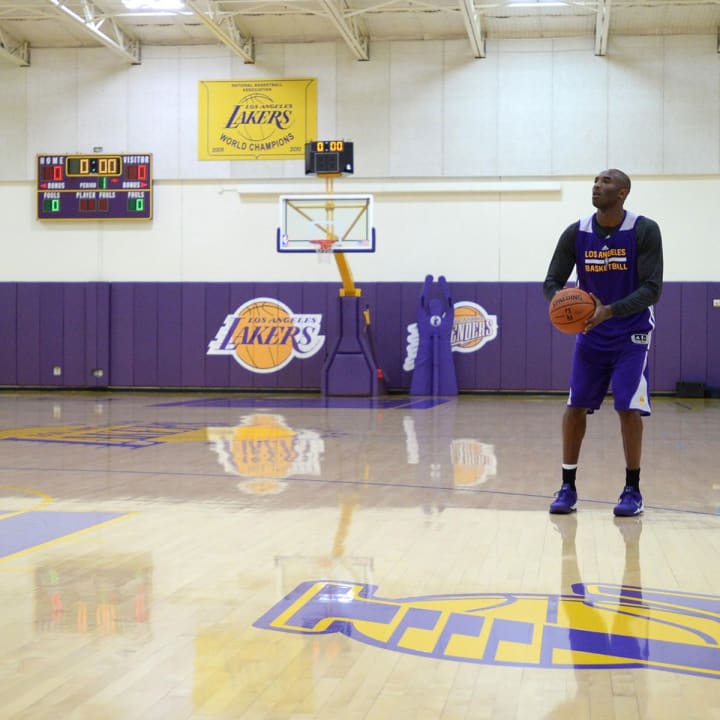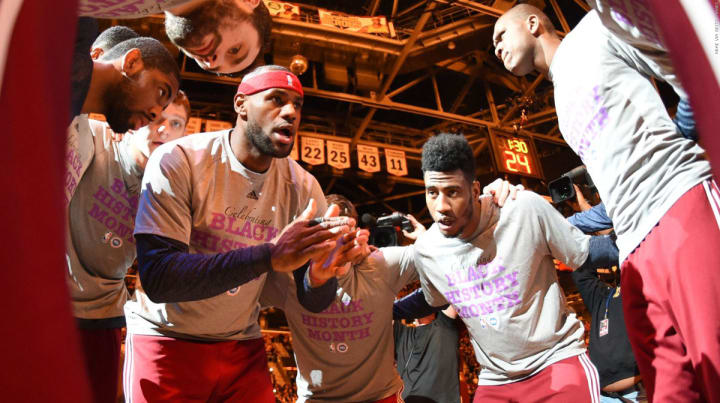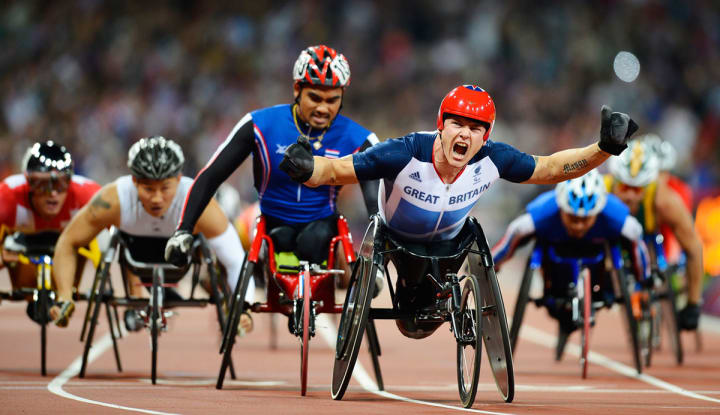How Youth Sports Create Successful Adults
Youth sports create successful adults by imparting valuable life lessons as an important stage in development.

Bruises, life-long friends, ripped shirts, and more trophies than my mom knows what to do with—the world of youth sports has given me a lot. Some sports impressed more emotion and value upon me than others. Youth sports have given me one of the greatest feelings I’ve ever experienced: walking off the field during my senior season of varsity soccer while holding a Sectional Championship trophy. Sports have also given me some of my hardest times, as I worked to find balance with my social life, daily practices, and studying for the SATs, all while trying to keep my grades up.
I’ve invested a lot of my life into sports, and I’d like to think that sports have invested a lot into me. I’ve been an athlete since the day I could walk, and I stuck with soccer and basketball competitively throughout high school and college. I know what it takes to win, but I also know the feeling of failure. The experiences I’ve had through youth sports have taught me crucial lessons that I will take with me on my journey through life.
Youth sports are more than just games—they are opportunities for young children to be part of something bigger than themselves for the first time, and to see what it takes to be successful. Being a teenager is tougher than it seems, and it is often difficult for parents to instill the kind of qualities needed to succeed in today’s society into their children without sports. The truth is that being part of a team with a common goal, interacting with people from all types of places, and preparing to compete are some of the most powerful ways we can prepare our youth for the workforce. Sports have taught me some extremely worthwhile lessons, and I now hope to pass them on to you.
The Team Dynamic Becomes More Important Than the Individual

While it might sound cliche, there is nothing more important than realizing what can be accomplished when working as a team as opposed to an individual. I’ve played on dozens of sports teams over the years, and the most successful of these teams have understood the concept of teamwork to its fullest extent. Nobody cared who scored the game-winning basket or the game-winning goal—success was the only thing that mattered. We’d all love to be the hero, but the true hero is the one who makes the pass before the game-winning shot, the bunt to advance the winning run—the one who sacrificed his own glory for the good of the team. Being a team player is about one thing: sacrifice. As the common but accurate phrase goes, there is no “I” in “team,” and with any difficult task, no one person can expect to achieve it alone.
When I was a junior in high school, I played on my school’s varsity soccer team along with a very talented cast of teammates. There were some big egos, and while we were dominant throughout the regular season against lesser competition, we began to lose the concept of “team play” during the state playoffs. Instead of focusing on keeping possession of the ball and moving as a team, we had players trying to score incredible goals by themselves. It didn’t work (obviously), and we ended up losing in the second round after having our sights set on a state championship. The next year when I returned to the team as a senior and leader of the team, I made sure we always kept the team’s goals ahead of individuals with their own interests. We won the Central Jersey Sectional Championship that year. Good memories.
You Learn What It Takes to Be a True Competitor

Photo via Bleacher Report
One of my father’s coworkers once told me that the greatest lawyers he knew were former athletes. Curious, I asked him why he thought this. He told me that these employees displayed a type of competitiveness and drive that non-athletes simply didn’t exhibit. The athlete was willing to put in the extra time and do the extra research to make sure that his presentation was as perfect as possible. He or she knew it wasn’t acceptable to wake up each morning unprepared for the day’s events. I call this concept “preparation for greatness.” Greatness will never be achieved unless you are willing to compete with every person around you and use their success as motivation to produce your best work.
The most important thing I gained from being an athlete is my competitive nature. I want to be the best at every single thing I do, and I will not stop until I have reached that point. Athletes understand this more than anyone—in order to be the one holding the trophy on the podium in front of the camera at the end of the race, it takes hundreds of hours in the gym behind the scenes. Most say they want to succeed, but they aren’t willing to put in the preparation it takes.
“When you want to succeed as badly as you want to breathe, that is when you’ll be successful.”
You can’t just show up on game day and expect to win. It takes preparation, planning, and execution. Athletes make for great employees because they use others' successes not as discouragement, but rather as motivation to push them to perform at an extremely high level. It’s difficult to learn this lesson without having real-life experiences where you are forced to compete with those around you, and sports gave me that opportunity.
Fitness and Healthy Eating Become Important Aspects of Your Life

Image via Getty Image user ferrantraite
I remember running around the track during my two-mile run for soccer workouts thinking “I wish I was doing literally anything else.” We had to be there at 8 AM on 100-degree August days, and Coach Somma wouldn’t dismiss us until somebody had passed out from exhaustion. Even though I spent the rest of these days resting my body, our team was in the best shape of any team in our conference, and it showed at the end of games when we had the fresh legs to finish out a team while they walked in fatigue.
While in the moment I may not have appreciated it, playing sports throughout my life forced me to remain in good shape and eat healthier foods. My coach always preached the importance of a strong breakfast to start your day. He also made sure we drank a lot of water on game days. Unfortunately our society struggles with extreme obesity issues, and it is important that the next generation understands the value of keeping fit and maintaining a balanced diet. Don’t let your child sit inside playing Xbox all day—sign him up for the local soccer team and let him run around for a couple of hours each day.
It becomes harder to find time for the gym as you enter the real world, however it is vital to get some sort of exercise daily. A little exercise each day goes a long way, and keeping a balanced diet will leave you ready for the day’s work.
You Develop Leadership Skills On and Off the Field

Photo via NBA.com
One of the most respectable but hard-to-find qualities in sports is the ability to be a leader. A sports team is often made up of people with varying personalities, and it is easy for egos to get in the way of achieving ultimate success. Leaders come in all different shapes and sizes, some leading with their wisdom and advice, while others lead by example. Every successful team in history has had a defining leader—the person who is able to rally the troops even when victory seems impossible.
But that’s exactly what a leader is: the person a group turns to when the going gets tough, when you’re down by three in the fourth quarter, when the bases are loaded with two outs in the ninth. A leader is tasked with keeping confidence high when the odds are low, and also with inspiring everyone to perform at their very best. Future Hall of Famer and NBA superstar Lebron James showed unwavering confidence in his team even as they went down 3-1 in the series to the invincible 2016 Warriors. Former Apple CEO Steve Jobs once said,
“The people who are crazy enough to think they can change the world, are the ones who do.”
While James did not change the world as he led the Cavs to an NBA Championship, becoming the first team to EVER come back from a 3-1 playoff deficit, he surely displayed the true qualities of a leader. Even if nobody else in the entire world believed they would win, all it took was one person to have the confidence to inspire the team to victory. The way he willed his team to victory was impressive, and there are many lessons to be taken from his leadership. He did not let anyone on his team doubt for even a second that they would win, instead instilling a supreme confidence in his teammates.
Playing on a sports team gives people the opportunity to become these leaders, and to learn the qualities that it takes to be them in the workforce: patience, inspiration, passion, accountability, confidence, and integrity. Being a leader of a sports team makes leading a team at work a piece of cake.
You Learn to Overcome Adversity

Photo via Rio 2016 Paralympic Games
In sports and in life, there are going to be obstacles that stand between you and achieving your goals. While winning a sports game is great, it doesn’t necessarily teach you anything because you simply continue what you’ve been doing. It is how you respond to failure, whether you quit or use it as motivation to come back stronger the next year... that is the true test of character. When you fail, are you the type of person to lash out in frustration and give up on your goals? Or are you the type of person to assess your situation, see what you did wrong, make improvements, and continue to strive toward your end goal? Playing sports throughout my life taught me that the latter is surely better—both in sports and in life.
As I mentioned earlier, I won the New Jersey Sectional Championship as a senior in high school soccer. Our road to the finals remains one of the greatest underdog stories I’ve ever heard. We had a record of 4-16 during the year—at one point losing ten games in a row. We had been playing against schools much larger than us, but we knew going into the state tournament that we would be up against teams our size. We could’ve easily given up on the season after that record, but it was my senior year of soccer and I was not going down without a fight. We won four straight games in a row, doubling our win total of the entire season en route to the state championship. I will never forget that tournament run we had, and it is one of my favorite lifelong memories. I will take the lessons learned on the soccer field and apply them to everything I do, for there is no greater lesson than learning how to deal with adversity.
You must understand that you are going to fail before you succeed, and thus understand that it is okay to fail. In a famous interview, basketball legend Michael Jordan once said,
“I’ve missed more than 9,000 shots in my career. I’ve lost almost 300 games. 26 times I’ve been trusted to take the game winning shot and missed. I’ve failed over and over and over again in my life. And that is why I succeed.”
In sports, in life, and in the workplace, you are going to fail at some point or another. Nobody wants to fail, but it’s part of the learning process and a necessary stop along the road to greatness.
About the Creator
Matt Schkolnick
Penn State Graduate. Sports Fanatic. Entourage Enthusiast. Amateur Photographer. World Traveler.





Comments
There are no comments for this story
Be the first to respond and start the conversation.